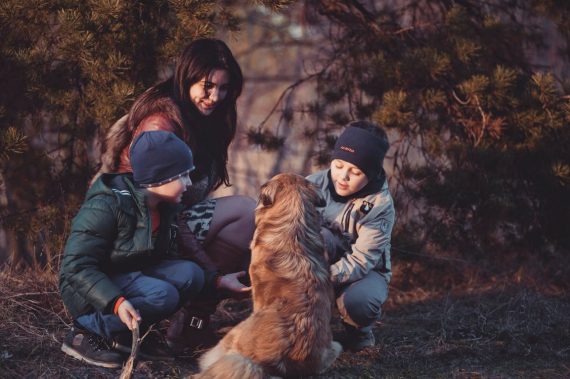Explaining the death of a pet to your child
 Well-loved pets are our companions through life and become part of the family. Like losing a human friend or family member, when they die we can be left with painful feelings and emotions.
Well-loved pets are our companions through life and become part of the family. Like losing a human friend or family member, when they die we can be left with painful feelings and emotions.
The devastating loss of a family pet can hit hard, and often none more so than with our children. Here are some tips for breaking the news to a child and helping them to deal with the loss.
Every situation is different, and it is important to understand that there are different ways that you should deal with the death of a pet according to the circumstances. For instance, if your child is very young, or less able to understand the concept of death, or if the death was sudden and unexpected. However, there are some general ways of approaching the subject that can apply to most situations.
First of all, you should find a quiet time to approach the subject with your child. Speaking to them when they are around other people can cause unnecessary upset and panic. So, choose somewhere silent with no distractions. If your dog is to be euthanised, then it can help to highlight signs of ageing or illness in your pet to your child in advance. This will make it easier for them to understand why you had to say goodbye.
When talking about what has happened it is important to be honest and frank. Death is a part of life and choosing to tell a ‘little white lie’ can come back to haunt you. For instance, if you tell one child that your pet has ‘gone away somewhere’ only for them to hear the truth from an older sibling then it can cause resentment and hurt in that child.
It might also be the case that your child becomes confused by the language you use, for instance if you say that their dog has ‘been taken to a better place’ then they may start to worry that this will happen to their other pets, brothers, sisters and parents.
Allow your child to show their emotions, but don’t be worried if they appear not to be upset by what has happened. Everybody grieves in different ways and it may take time for them to feel the emotional impact of what has happened.
Finally, involve your children as much as they want to be involved. You may decide to bury your pet, in which case they could choose to read a poem or share a fond memory. In the end this can be a therapeutic experience to help the whole family to bid farewell and to come to terms with what has happened.
For more practical tips on dog training, behaviour therapy and other pet related issues, please visit our articles page which is full of free advice.